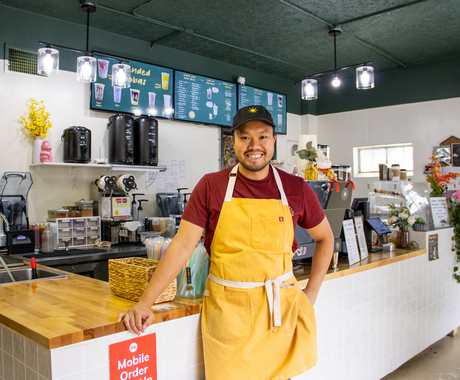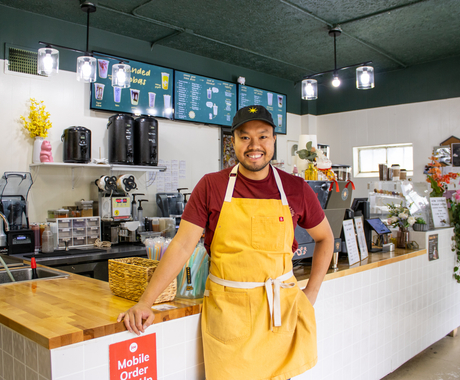Justin Carter contributed to this story.
The American Southwest has been home to the Zuni people for more than a thousand years. The culture is deeply rooted in tradition, and Zuni art has become a material historical record. Painting, pottery, jewelry, fetish carving, and other art forms have significant meaning and help the Zuni unite the past with the present.
The Ancestral Rich Treasures of Zuni Cooperative Inc., or ARTZ, formed April 23, 2019, provides artists an outlet for sales and educating the public on the authenticity of Zuni art.
The grassroots cooperative grew out of the Zuni Pueblo ArtWalk Program, which originally was set up for tourists and buyers. The co-op offers an in-depth look at artists, their studios, and creation of their wares.
Its members learned from other artists that they lacked business education in terms of pricing their wares and that they needed to learn about cultural traditions and preservation.
“We are very special in a way that we have a job-ware market, where outside individuals come into our reservation and purchase artwork at very low pricing... then they sell it to a gallery to make a profit,” said Kandis Quam, treasurer and artist with ARTZ.
The ARTZ Cooperative’s 32 members range in age from 20 to 80. Artists must apply to be members and once accepted can sell their work in a gallery on the Zuni Pueblo Reservation in New Mexico. Proceeds are split 60/40. More money can go to the artists because the gallery is operated by artists on a volunteer-based schedule. The funds that go to the gallery pay for building utilities.
Artists use the gallery to strengthen the community that empowered them to create the only Zuni artist-owned and -operated cooperative, which was founded to give power back to the artists and ensure they receive full monetary value for their work.
A site coordinator is the only paid employee now, but co-op members hope to use grant money to hire additional staff.
“Our organization is open to everybody, and our community is very open,” said Elroy Natachu, Jr., ARTZ board member and artist. “Our foundations in our own culture relate very well to the cooperative model in terms of cooperation and assisting one another.”
Within the first six months of operation, without marketing or advertising, the co-op had gallery and website sales totaling $20,813.35 and paid more than $12,000 to the artists and cooperative members.
“Since our membership is fairly big, we started to lean on one another and create a family within ourselves,” said Kandis. “This has helped with a lot of the backbone of the cooperative. We also do all the paperwork, so the artists/members don’t have to handle any of that and can just focus on their art.”
Said Elroy: “We were very fortunate that our members had clients we could tell about the opening of the cooperative. It all spread by word of mouth and was very successful. We now have a website, Instagram, a Facebook page, and other marketing strategies, to help spread our message and show our art to the world.”
Justin Carter, senior project associate with the Center for Rural Affairs, interviewed Kandis and Elroy for a case study focused on the ARTZ Cooperative. On Aug. 10, 2021, they presented a webinar offering more information about the co-op. Click here to view the case study. To watch the webinar, visit our youtube channel.
Photos submitted.







